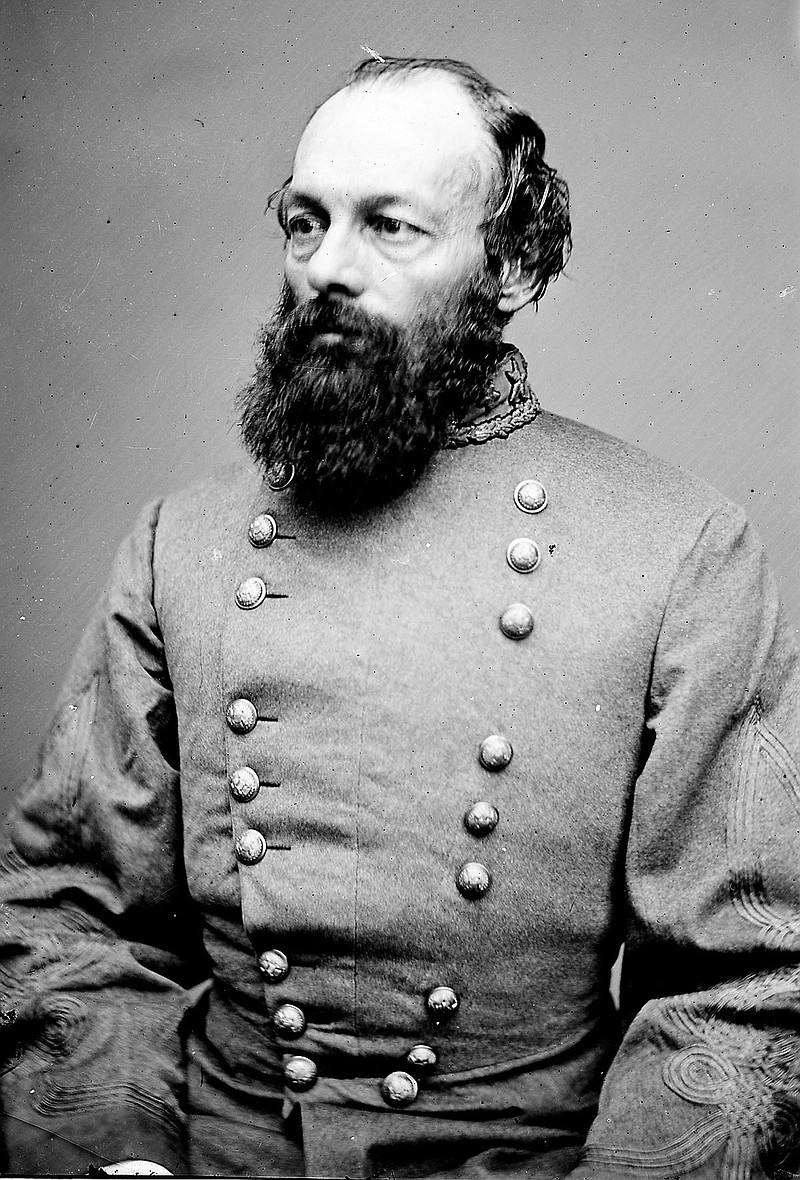Gen. Edmund Kirby Smith was disgusted with Gen. Braxton Bragg after the Battle of Perryville, Ky. But it could have been the reverse. Gen. Bragg had more reasons to be dissatisfied with Smith. It all started in Chattanooga and involved miscommunication and changing plans.
A few months after the Union victory at Shiloh in April 1862, the Federals dispatched Gen. Don Carlos Buell's Army of the Ohio to Chattanooga. Their intent was to run the Confederates out of eastern Tennessee.
The Confederate Army of East Tennessee was commanded by Smith, who panicked at the approaching Federal hoard. He called for help from Bragg, commander of the Army of the Mississippi, later the Army of Tennessee.
Bragg was in the process of moving his army from Tupelo, Miss., to Chattanooga. Once here, Bragg's army would be in a sector technically commanded by Kirby Smith, even though Bragg was the senior commander. Both generals intended to work out the situation.
Before Bragg's entire army arrived, he and Smith met in Chattanooga to discuss plans. They agreed that once the two armies came together, Bragg would be in charge. Until then they would operate separately. This arrangement spelled trouble from the start.
The two generals planned a two-pronged assault to take middle Tennessee and Nashville from the Federals. Since Bragg's army was still consolidating in Chattanooga, Smith's army would move first, leaving Knoxville to rout the Federals from Cumberland Gap and proceeding to middle Tennessee. By then Bragg's army would be ready to move from Chattanooga and strike with Smith into middle Tennessee.
After leaving Bragg in Chattanooga, Smith formed his army in Knoxville and made a reconnaissance of the Federal forces in Cumberland Gap. He decided that the Federals were too strong to be quickly brushed aside. He had a better idea: forget Cumberland Gap and middle Tennessee and invade Kentucky.
Smith assured Bragg that an invasion into Kentucky could produce magnificent results. It would force the advancing Federal army under Buell to vacate northern Alabama and Georgia. Further, it might draw Kentucky into the Confederacy and, at minimum, induce a number of Kentuckians to join the Confederate army.
Bragg quickly acquiesced to Smith's plan and transported 15,000 firearms to supply the potential Kentucky recruits.
On Aug. 14, Smith left Knoxville for Kentucky. Two weeks later, Bragg left Chattanooga for Kentucky. By the time Bragg departed, Smith was already in the border state.
Meanwhile, Buell's Federal army forgot about Chattanooga and went north to try to reach its supply base in Louisville, before Bragg could get there.
Bragg stayed ahead of Buell. On Sept. 17 Bragg's army was in Munfordsville, Ky., which stood between Buell and his supply base in Louisville.
Smith had scattered his army around middle and northern Kentucky. Importantly, his troops were about 100 miles away from where Bragg confronted Buell. Without Smith, Bragg felt too weak to attack Buell or Louisville.
Bragg moved northeast, hoping to unite with Smith and replenish his supplies.
This allowed Buell to enter Louisville and obtain reinforcements. Then Buell went after Bragg in earnest, which led to the battle of Perryville.
There was still no Smith at Perryville. His forces were scattered. To make matters worse, Smith was certain that Buell's army was headed straight in his direction. On the eve of the battle he was asking Bragg to send him reinforcements.
As it turned out, Smith and his army did not combine with Bragg's army until several days after Perryville. Smith briefly recommended that they fight another battle in the area around Bryantsville, Ky. Ultimately he agreed with Bragg's decision to retreat into Tennessee. The Union retained control of the critical border state of Kentucky for the rest of the war. Following the Kentucky campaign, Kirby Smith vehemently criticized Bragg and told Confederate President Jefferson Davis that he would refuse to serve again under Bragg.
Despite all of Bragg's shortcomings it seems that he had more justification to complain about Smith's performance than vice versa.
Certainly, Bragg and Smith's original, cordial meeting in Chattanooga didn't portend such a bitter aftermath.
Smith spent his last years as a professor of botany and mathematics at the University of the South. He died there in 1893, the last surviving full general in the Civil War.
Dr. Smith Murray is a retired urologist. For more, visit Chattahistorical.assoc or call LaVonne Jolley at 423-886-2090.
